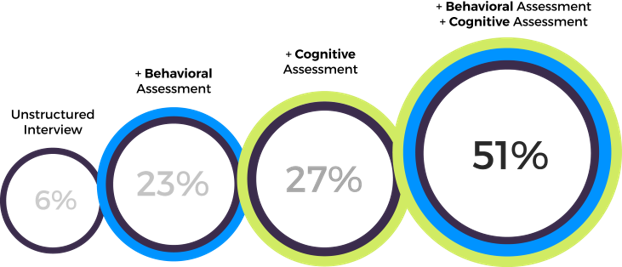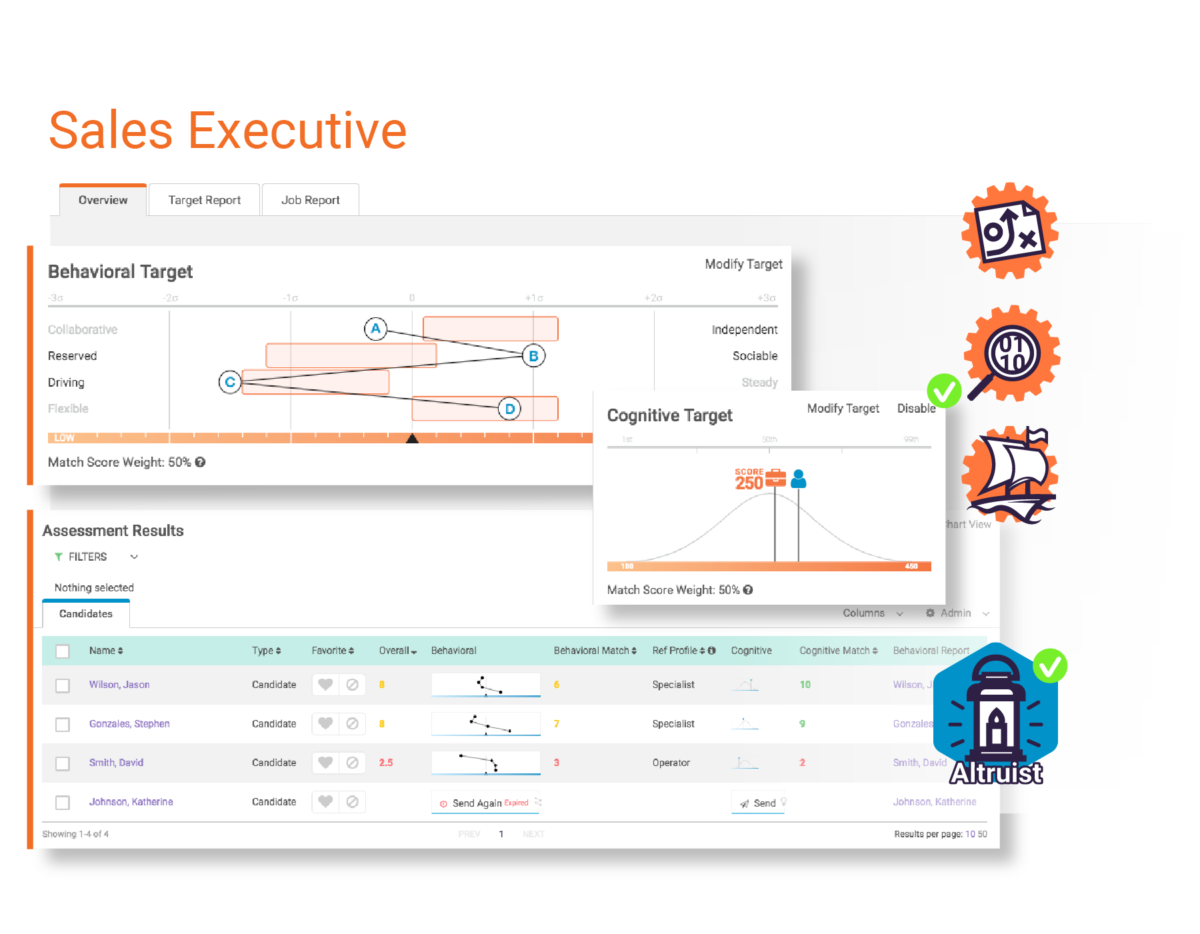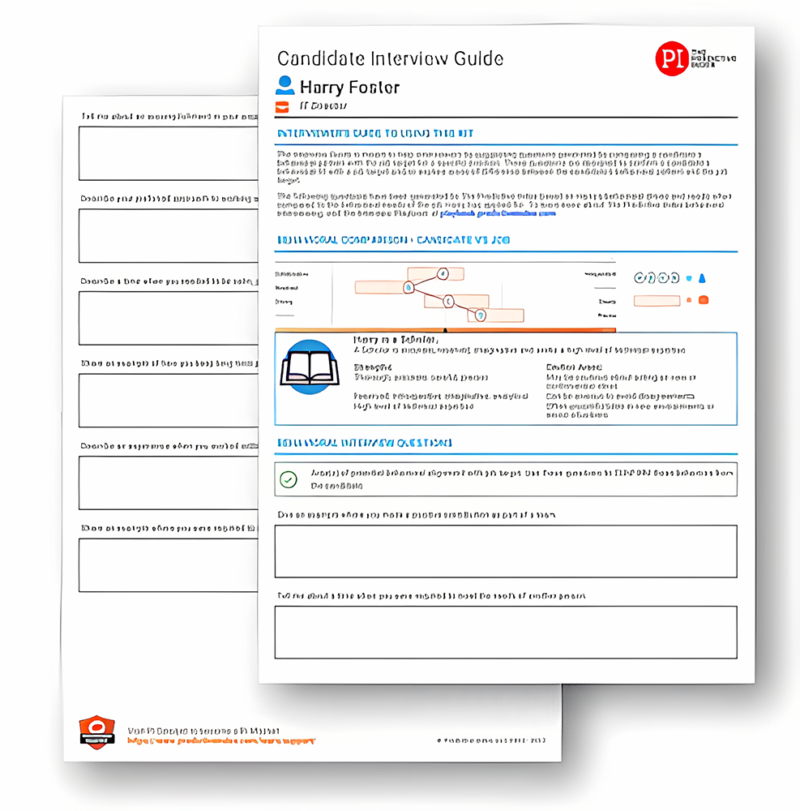Coaching and Development Tools Every Manager Needs
By PSC Admin |
7.7 min read
The Importance of Coaching and Development in the Workplace
Coaching and development are essential to business success, improving both team performance and individual employee growth. Effective coaching drives talent optimization, aligns team goals, and creates a supportive work environment. For managers, the right tools enable clearer communication, better performance tracking, and more effective mentorship.
Predictive Success specializes in providing powerful coaching and development solutions that allow managers to better understand their team members. By utilizing data-driven insights into behavioral patterns, learning capacities, and team dynamics, Predictive Success’s tools facilitate more effective coaching that drives positive results.
Must-Have Coaching and Development Tools for Managers

Behavioral Assessments for Understanding Team Dynamics
Behavioral assessments are pivotal in understanding how team members work best. The PI Behavioral Assessment™ from Predictive Success identifies an individual’s workplace behaviors, needs, and drives, providing valuable insights into how they interact within a team. Managers can use this tool to build better relationships, enhance team communication, and create an environment where employees thrive.
With a deeper understanding of individual work styles, managers can assign tasks that align with each team member’s strengths, leading to more efficient project execution and higher job satisfaction. Leveraging behavioral assessments is key to crafting a cohesive, high-performing team.
Cognitive Assessments to Enhance Learning and Development
Understanding an employee’s cognitive abilities helps managers tailor development strategies that match learning styles and problem-solving skills. The PI Cognitive Assessment™ measures how quickly someone processes information, learns new skills, and adapts to challenges.
Predictive Success uses cognitive data to guide coaching, training, and employee growth. This helps managers provide more focused development opportunities, ensure efficient onboarding, and optimize the overall learning experience. By aligning learning and problem-solving styles with job roles, cognitive assessments promote effective personal and professional growth.
Job Assessments to Align Role Expectations and Talent
Job assessments help define what success looks like for any given role. Predictive Success’s PI Job Assessment™ enables managers to set expectations clearly, ensuring talent is matched to the requirements of a role. These assessments consider both the behavioral and cognitive demands of a position, helping to identify the traits necessary for success.
This alignment between role and individual capability ensures that employees are not only well-suited to their tasks but also set up for long-term career development. Managers can focus on role-specific coaching that prepares their teams for advancement and success.
Relationship and Coaching Guides for Ongoing Development
Coaching is most effective when it’s continuous, and structured guides provide managers with a framework for effective coaching conversations. Predictive Success offers managers a structured approach to develop and mentor team members, focusing on enhancing individual strengths and addressing areas for improvement.
Coaching guides facilitate constructive feedback, goal-setting, and skill development. By using consistent, data-informed coaching tools, managers can engage in meaningful conversations that motivate and inspire their teams, creating an atmosphere of continuous growth and achievement.
Employee Engagement Surveys to Drive Development Conversations
Engagement surveys provide a pulse on team morale and satisfaction. Tools like the PI Employee Experience Survey from Predictive Success help managers understand what motivates their employees and identify potential challenges affecting engagement and productivity.
By gauging team sentiment, managers can proactively address issues, celebrate successes, and enhance their coaching strategies. Engagement surveys are powerful tools to initiate open dialogue, leading to actionable insights that drive better performance, strengthen workplace culture, and support professional development.
Using Data to Inform Coaching Strategies

Leveraging Data for Talent Optimization
Data informs decisions, and coaching is no exception. Predictive Success’s suite of data-driven tools provides managers with the insights needed to develop tailored coaching strategies. These assessments—behavioral, cognitive, and job-specific—collect valuable data that helps managers identify areas for growth, predict employee performance, and create personalized coaching plans.
Managers can use this data to set realistic goals, track progress, and optimize team dynamics. Data-driven coaching enhances accountability and encourages a culture of continuous improvement.
Building High-Performing Teams with Data-Backed Insights
Data-backed assessments reveal more than individual abilities—they highlight how a team works as a whole. Predictive Success’s Team Discovery Report provide managers with insights into their team’s strengths, potential conflict areas, and overall alignment.
By understanding how team members’ personalities and cognitive abilities interact, managers can create high-performing, balanced teams. Whether it’s identifying gaps or reinforcing existing strengths, these insights empower managers to cultivate a connected, engaged, and aligned workforce.
Developing a Coaching Culture within Your Organization

A coaching culture goes beyond formal training programs—it’s about embedding development into the fabric of an organization. Building a culture where continuous learning is encouraged helps retain talent, drive engagement, and foster innovation.
Predictive Success’s Leadership Coaching and Management Strategy Guides provide actionable steps for managers to integrate coaching into their daily interactions. These resources enable leaders to cultivate coaching relationships, foster open communication, and encourage career development at all organizational levels.
Organizations that develop coaching cultures experience higher engagement, stronger leadership, and a clearer path toward achieving business goals.
Best Practices for Implementing Coaching and Development Tools

Regular Check-ins and Feedback Loops
Regular feedback is a critical component of effective coaching. Managers should conduct regular check-ins to discuss progress, celebrate achievements, and provide constructive feedback. These consistent touchpoints ensure ongoing alignment between an individual’s goals and business objectives, keeping development on track.
Predictive Success encourages a coaching cadence that builds trust, enhances employee development, and supports continuous performance improvement.
Integrating Tools with Existing HR and Management Systems
For coaching and development tools to be effective, they need to seamlessly integrate with existing HR processes and management systems. Predictive Success’s tools, including behavioral and cognitive assessments, are designed to align with talent acquisition, onboarding, and performance management frameworks.
Managers can incorporate these tools into their workflows to streamline talent development and create a cohesive approach to employee growth.
How Predictive Success Supports Managers in Coaching and Development

Predictive Success’s suite of coaching tools and assessments is designed to support every stage of the employee lifecycle. From hiring and onboarding to performance management and leadership development, these tools enable managers to enhance their coaching efforts and optimize team potential.
The PI Behavioral Assessment™ helps understand team dynamics, the PI Cognitive Assessment™ accelerates learning, the PI Job Assessment™ ensures role alignment, and Coaching Guides provide structure for impactful conversations. Together, these tools empower managers to cultivate talent effectively and drive business performance.
Successful case studies show how Predictive Success has helped organizations build high-performing teams and foster coaching cultures that lead to improved productivity, better engagement, and reduced turnover.
FAQ Section
What are the key benefits of coaching and development for managers?
Coaching enables managers to enhance individual performance, align team objectives with business goals, and foster a culture of continuous growth. By providing personalized support and guidance, managers can improve employee morale, engagement, and retention.
How can managers choose the right coaching tools?
The right coaching tools should be user-friendly, offer actionable insights, and align with an organization’s business and talent strategies. Managers should look for tools that offer behavioral and cognitive data to facilitate personalized coaching experiences.
How often should managers engage in coaching conversations?
Coaching conversations should be a regular part of team interactions. Depending on team needs and goals, these conversations can occur weekly or bi-weekly, with a focus on providing actionable feedback and support for development.
How can Predictive Success help managers get started with coaching?
Predictive Success provides comprehensive tools and training to guide managers through the coaching process. With assessments, structured guides, and data-driven insights, managers can easily integrate these tools into their coaching practices to enhance team development.
Conclusion: Essential Coaching and Development Tools for Managers
Coaching and development are cornerstones of successful leadership. With the right tools, managers can empower their teams, drive continuous improvement, and unlock greater potential within their organizations. Predictive Success offers tailored solutions that provide valuable insights into behavior, cognition, and engagement, helping managers implement data-driven coaching practices effectively.
By leveraging these coaching tools, managers can create environments that support growth, improve performance, and achieve business success. Explore the tools and resources available through Predictive Success to start your coaching journey today.
Get started with Predictive Success today to elevate your team’s performance and build a culture of continuous improvement. Request a demo today!
Further Reading
For additional insights into coaching and development tools, explore the following resources:
- “Why We Need to Make Every Manager a Great Coach” – Harvard Business Publishing: This article explores the importance of coaching in modern management. It highlights that effective coaching helps employees make independent decisions, enhances employee engagement, and even reduces workplace loneliness. By fostering a coaching culture, managers can improve team performance and build stronger connections with their employees.
- “Coaching in the Workplace: It’s Different from Traditional Managing” – SHRM: This piece from SHRM delves into how coaching differs from traditional managing, emphasizing that coaching leads to more motivated and better-performing employees. The article also discusses practical coaching tools and methods that managers can use to help their teams excel.
Related Blogs
Combining The Five Dysfunctions of a Team and The Predictive Index: A Talent Optimization Blueprint
Combining The Five Dysfunctions of a Team and The Predictive Index: A Talent Optimization Blueprint by Predictive Success High-performing teams don’t emerge by accident—they’re designed with intention. Combining The Five Dysfunctions of a Team and
The Top 3 Costs Facing Companies and How The Predictive Index Helps You Reduce Them
The Top 3 Costs Facing Companies – and How The Predictive Index Helps You Reduce Them Running a business is all about managing costs while driving performance. For most organizations, three major expenses consistently rise
Quiet Cracking at Work: How The Predictive Index® Stops Employee Engagement from Collapsing
The Quiet Cracking Crisis: Why Employee Engagement Is Falling Fast—and What to Do About It The New Danger: Quiet Cracking A recent Business Insider article introduces a worrying phenomenon in the workplace: “quiet cracking.” It



